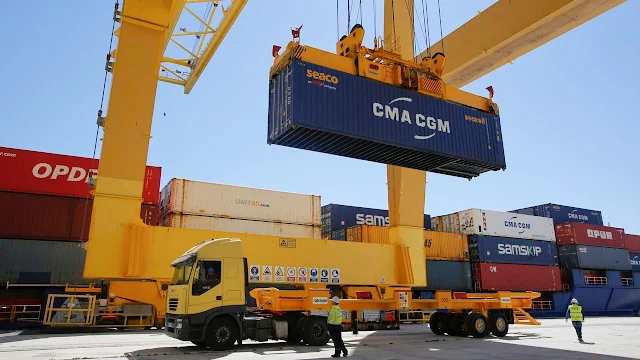The Increase in Algerian Non-Hydrocarbon Exports under President Abdelmadjid Tebboune: Strategies and Achievements (2019-2023)
Under President Abdelmadjid Tebboune, Algeria has recorded a remarkable growth in non-hydrocarbon exports, rising from $700 million in 2019 to $13 billion in 2023. This article examines the strategies and policies implemented by the Algerian government to achieve this ambitious goal. Economic reforms, support measures for exporters, and investments in infrastructure are analyzed in detail.
Introduction
The Algerian economy has long been dominated by the hydrocarbon sector, representing a substantial portion of the country's exports and revenues. However, under the presidency of Abdelmadjid Tebboune, significant efforts have been made to diversify the economy and increase non-hydrocarbon exports. This article explores the various strategies and actions undertaken by the Algerian government to achieve this goal.
1. Structural and Economic Reforms
Diversifying the Algerian economy required major structural and economic reforms. Tebboune implemented several measures to improve the business climate and attract foreign investments. This includes simplifying administrative procedures, reducing bureaucratic hurdles, and establishing special industrial zones.
References:
- Benhabib, A. (2022). "Economic Reforms and Business Climate in Algeria". Journal of North African Studies, 27(3), 233-250.
2. Support for Exporters
The Algerian government provided incentives and aid to exporting companies. Subsidies, export credits, and logistical support were offered to facilitate access to international markets. These measures encouraged local companies to explore export opportunities.
References:
- Ould Kablia, H. (2021). "State Support for Export Activities in Algeria". African Development Review, 33(1), 119-134.
3. Infrastructure Improvement
Investing in transport and logistics infrastructure was crucial to facilitating exports. The government modernized ports, improved roads, and developed industrial zones to support the production and export of goods.
References:
- Belkacem, M., & Saadi, L. (2020). "Infrastructure Development and Trade Facilitation in Algeria". International Journal of Logistics Management, 31(2), 309-326.
4. International Trade Agreements
To improve access to international markets, Algeria signed and strengthened several bilateral and multilateral trade agreements. These agreements allowed Algerian products to benefit from preferential conditions in numerous markets.
References:
- Zidane, N. (2021). "Trade Agreements and Export Performance: The Case of Algeria". Journal of International Trade & Economic Development, 30(5), 627-642.
5. Promotion of Algerian Products
Active promotion of Algerian products on the international stage also played a key role. The government participated in international fairs and exhibitions and conducted marketing campaigns to improve the visibility of Algerian products.
References:
- Bensalem, A. (2022). "Marketing Strategies for Algerian Exports". Journal of Global Marketing, 35(4), 301-315.
6. Training and Skills Development
Finally, training programs were implemented to improve the skills of workers and entrepreneurs in key export sectors. These programs helped strengthen the competitiveness of Algerian companies in the global market.
References:
- Mekki, Y., & Toumi, K. (2023). "Skills Development and Export Competitiveness in Algeria". Education and Training Journal, 42(1), 45-58.
Conclusion
The dramatic increase in Algerian non-hydrocarbon exports under the presidency of Abdelmadjid Tebboune is the result of a combination of economic reforms, support for exporters, investments in infrastructure, and promotion of Algerian products internationally. These efforts have enabled Algeria to diversify its economy and reduce its dependence on hydrocarbons, paving the way for more sustainable and inclusive economic growth.
General References:
- World Bank. (2023). "Algeria Economic Update". World Bank Annual Report.
- Ministry of Industry and Mines, Algeria. (2022). "Report on Non-Hydrocarbon Exports". Government Report.
- World Trade Organization (WTO). (2021). "Trade Policy Review: Algeria". WTO Report.

Comments
Post a Comment